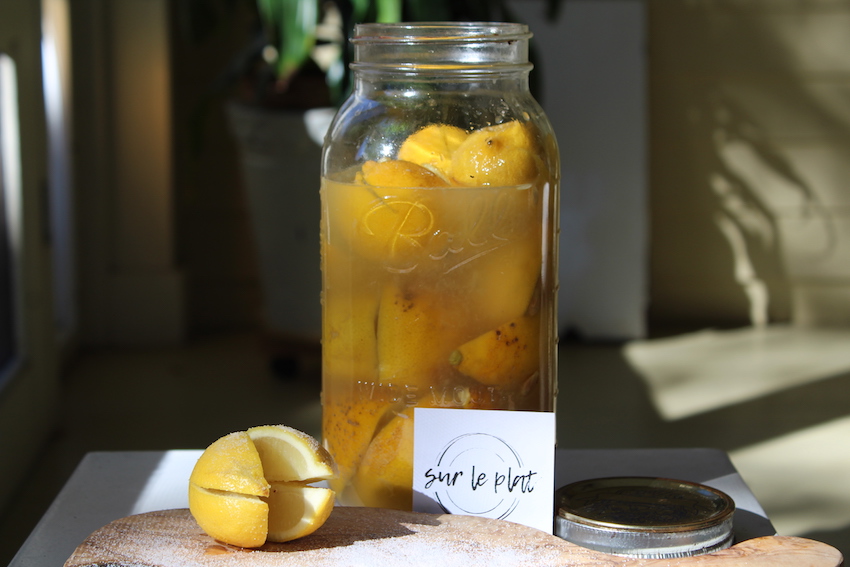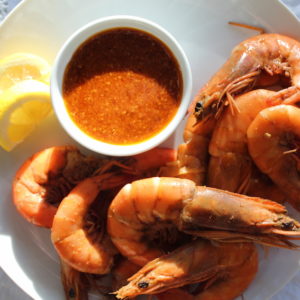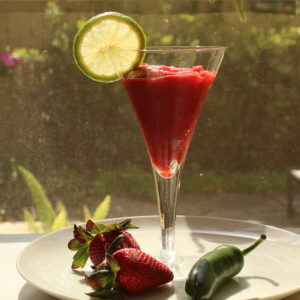If you are going to cook Mediterranean cuisine, particularly cuisine from North Africa, then having a jar of preserved lemons is essential. In Mediterranean cooking, lemons are used in potatoes, such as my Greek Roasted Potatoes and on grilled fish, (Greek grilled whole fish), in salad dressings, and with olives. Finely shaved lemon zest sprinkled over grilled meats and seafoods, and preserved lemons are used in vegetable and lamb tagines, salads, and chicken dishes. Preserved lemons have a unique pickled taste with a smooth and silky texture. The flavor cannot be duplicated with regular fresh lemon juice or rind.
When some people are given lemons, they make lemonade. When I was gifted with an abundance of Meyers lemons this winter by my generous friend Maurer, I made jars of preserved lemons for myself and my friends. I used quart and half gallon jars but you can also choose to use a pint-sized Mason jar if you wish to start small.
There is no exact recipe. All you need is lots of lemons, fresh lemon juice, and salt. The lemons can be kept up until one year if they are covered with plenty of lemon juice and salt. The first time I made preserved lemons, I sought the advice of one of my favorite cookbook authors and writers, Paula Wolfert. Paula Wolfert has written books on Moroccan cooking, the cooking of Southwest France, and Eastern Mediterranean cuisine. My tattered, stained, and dog eared copy of Wolfert’s “Mediterranean Cooking” is one of my most beloved cookbooks.
Herbs (black peppercorns, bay leaves) are optional to add to the preserved lemons as in the manner of the Safi. If the lemons develop a thin white substance over time, do not despair, simply rinse off the lemons before using. In fact, the lemons should always be rinsed before incorporating into a recipe. Now, you too can enjoy the sensuous pleasures of true Mediterranean cuisine!






Comments are closed.